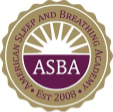There are a number of sleep disorders that keep patients awake at night and disrupt healthy sleeping patterns. These sleeping disorders include:
- Insomnia
- Periodic Movement in Sleep, including Restless Leg Syndrome
- Narcolepsy
- Fibromyalgia
- Bruxism
- Hypopnea
- Morning Headaches
- Snoring
- Pediatric Apnea
Insomnia
Most people are familiar with insomnia and may know a friend or family member who has had this frustrating condition. Insomnia is characterized by the inability to sleep and may be classified as transient, intermittent, and chronic. Insomnia causes many of the same problems as sleep apnea, such as irritability, daytime sleepiness, lack of energy and inability to concentrate. With onset insomnia patients are generally not good candidates for a sleep apnea appliance. With maintenance insomnia, some patients may actually be waking periodically due to sleep apnea. In these cases, patients can often benefit from an oral appliance.

Periodic Movement in Sleep/Restless Leg Syndrome
Periodic Movement in Sleep occurs when patients experience unusual sensations in the arms and legs, such as tingling or itching, or unprompted movement. Also referred to as Restless Legs Syndrome (RLS), PMS is caused by a neurological disorder. This condition occurs in the evening and during sleep, and most often happens when the person is inactive. PMS often disturbs sleep and motivates the patient to stretch or move in order to avoid the uncomfortable feeling in their limbs. PMS patients often suffer from insomnia as well.
Narcolepsy
Narcolepsy is a sleep disorder characterized by the tendency to fall asleep without control. Patients experience excessive daytime sleepiness with no specific cause and despite adequate nighttime sleep. Patients with narcolepsy face the challenges of dealing with a condition that often results in falling asleep at the most inopportune time, such as during driving. Some narcoleptic patients may also experience loss of muscle function, sleep paralysis, and hallucinations during sleep.
Fibromyalgia
Fibromyalgia is a disorder that causes patients to experience muscle and bone soreness, pain and stiffness, fatigue, and difficulty sleeping. Fibromyalgia sufferers report varying pain intensity in the back, neck, shoulders, hands, legs and other areas. Certain body areas may feel tender for no apparent reason, and a range of other symptoms such as shooting pains, numbness, tingling and throbbing may be present. The fatigue present in fibromyalgia patients is often so severe that patients' quality of life becomes diminished. Many fibromyalgia patients also experience an additional resulting sleep disorder. The sleep disorder and the fibromyalgia are so entwined it is impossible to successfully treat one without treating the other.
Bruxism
Bruxism, more commonly known as teeth grinding, usually occurs during sleep. Men, women and children who frequently grind their teeth can damage their tooth enamel and put harmful stress on the jaw joints. Bruxism occurs an average of 25 times per night, in four- to five-second episodes. Bruxism may actually be a sign of a serious TMJ/TMD disorder, a series of complications of the jaw joints that can be treated by a skilled neuromuscular dentist. While children tend to outgrow bruxism, patients who develop the condition in adulthood tend to worsen. If you or someone you know is a tooth grinder, see a dentist as soon as possible before permanent tooth damage is done. Bruxism can be extremely damaging to normal sleep patterns and may cause numerous awakenings.
Hypopnea
Hypopnea is defined as shallow or slow breathing. Patients who suffer from hypopnea experience instances of "underbreathing," where they struggle to get an adequate amount of oxygen into their lungs. Patients with sleep apnea may also experience hypopnea during the night.
Hypopnea, by definition, has a 3% drop in oxygen and an EEG awaking. Unlike apnea, this is not a complete blockage of air. The medical problems associated with hypopnea are identical to those found with apnea.
Morning Headaches
Many patients with sleep apnea complain of morning headaches, although morning migraines or headaches may actually be an indication of a Temporomandibular Jaw Joint (TMJ) disorder, which can be treated with neuromuscular dentistry in those patients who do not have apnea or whose headaches continue with apnea treatment.
Snoring
Heavy and disruptive snoring is a sign that the airway or nasal passages are not taking in air properly. Snoring can be a sign of sleep apnea and should be evaluated by a sleep disorder physician. Visit our snoring page for more information.
Pediatric Apnea
Heavy snoring in children may be a sign of pediatric apnea. Pediatric apnea causes children to have paused breathing events during sleep and can be dangerous if left untreated. Children with untreated apnea may experience daytime sleepiness, lack of concentration and mental capacity, trouble in school, and hyperactivity. Read more about pediatric apnea:
Learn more about sleep disorders and possible treatment options by calling 1-847-533-8313 today. Our sleep dentists at Think Better Life serve patients throughout the Chicago area, all of Illinois, and visitors from out of state and around the world.






